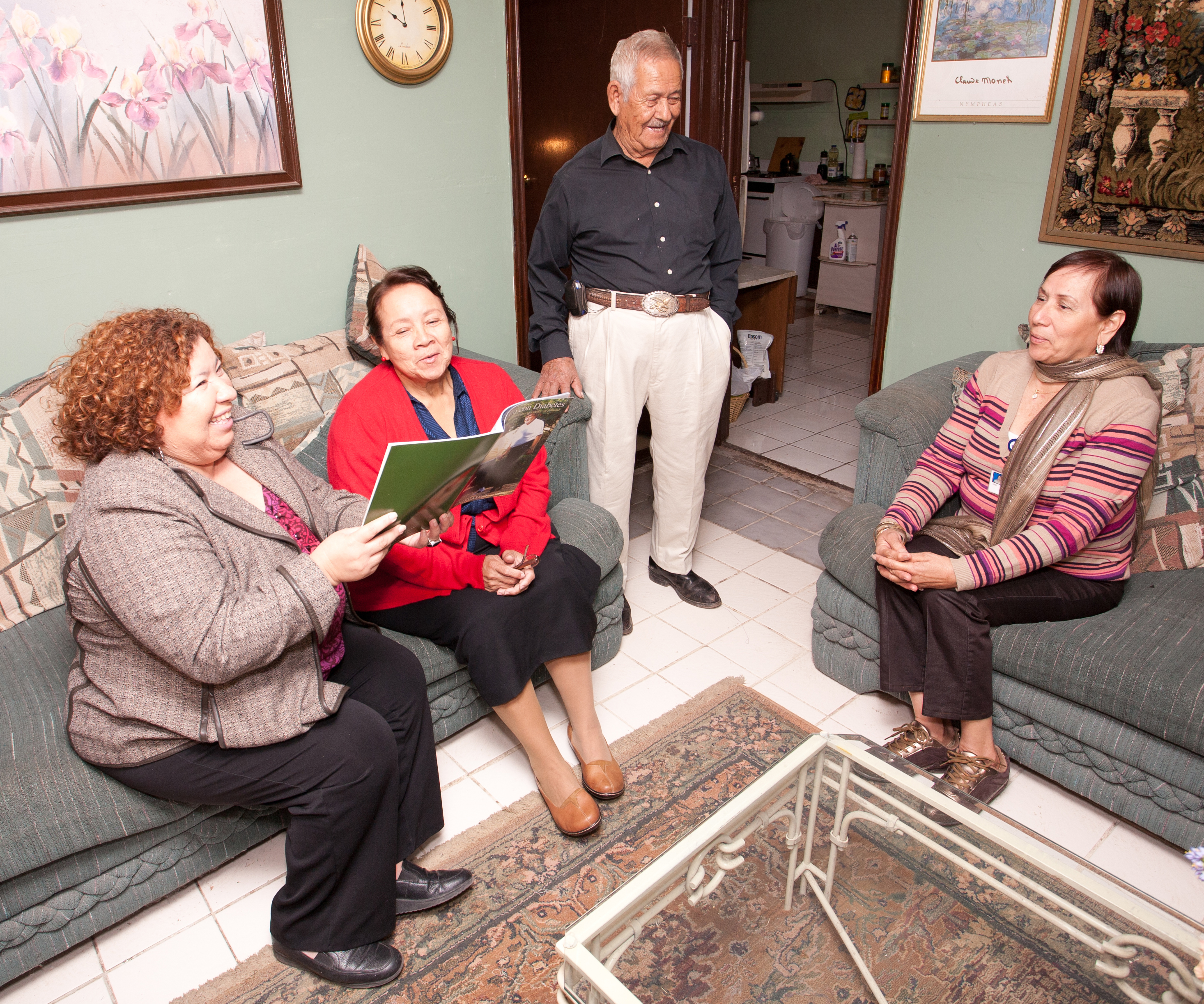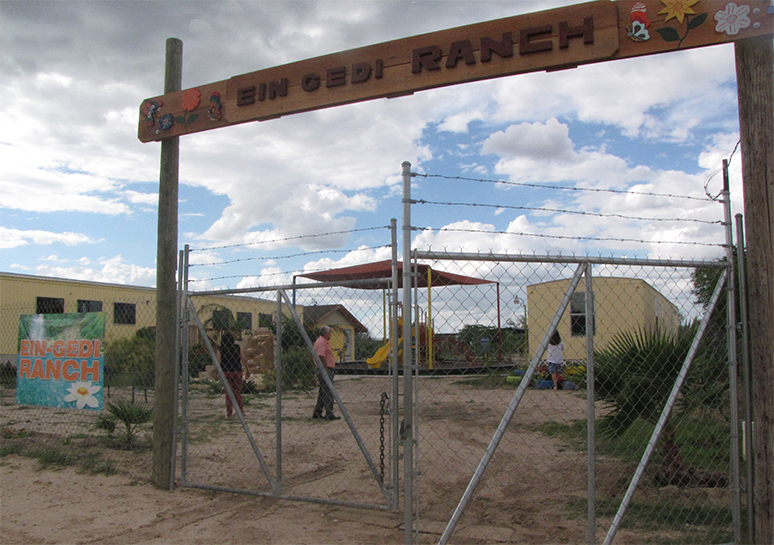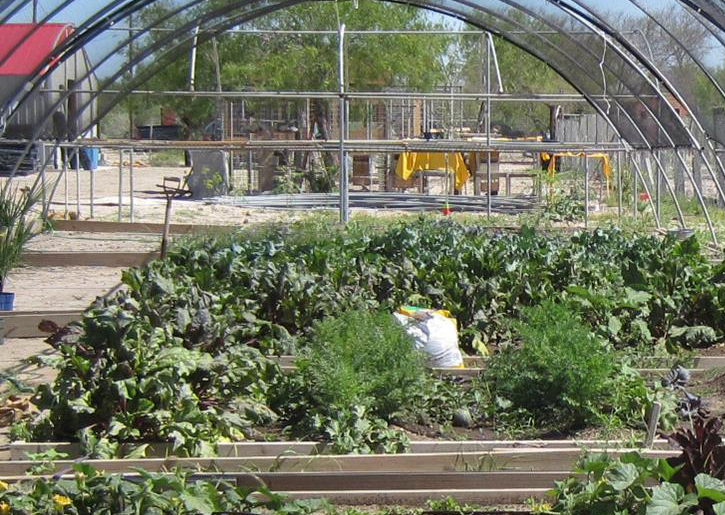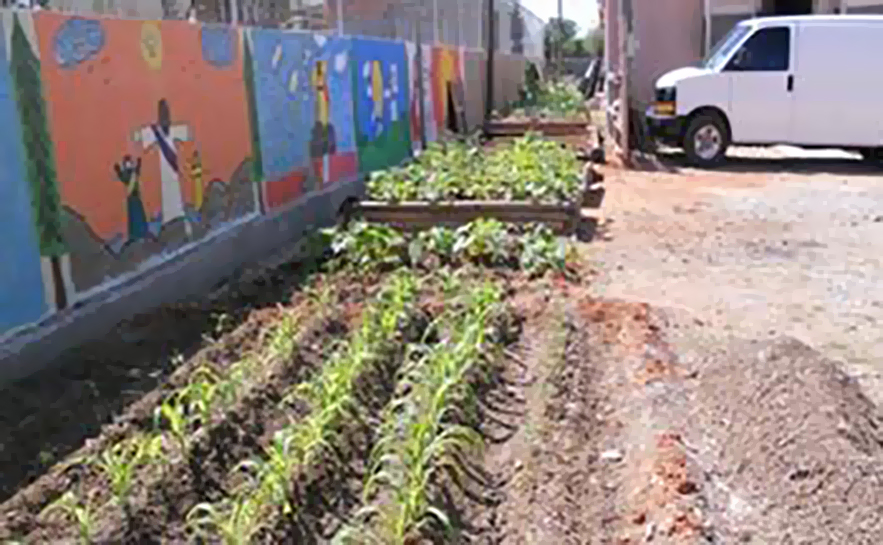Focus Area: Health
In colonias—and other underserved communities—health issues are tied to many economic, housing and environmental conditions. For example, homes may lack insulation or be located in a flood zone with mosquito infestations. Complex factors lead to serious health challenges, including limited access to:

A promotora on a home visit. Photo credit: Brownsville Community Health Center.
- Hospitals and providers.
- Safe drinking water.
- Quality housing.
- Healthy food.
But many individuals and organizations are working to make improvements.
Promotoras are community health care workers who inform colonia families about health-related issues and connect them to resources. For many, they are the difference between having health care and not. At the Brownsville Community Health Center in Cameron County, promotoras in the Mano a Mano program are working to enroll residents in public health care programs. They can be found walking door to door in colonias providing information and promoting healthy lifestyles. The chart below shows many of the health issues these residents face.
| Cameron County Faces Numerous Health Challenges | |||||
|---|---|---|---|---|---|
| Year | Cameron County | % | Texas | % | |
| Low birth weight | 2008 | 627 | 7.7 | 34,228 | 8.4 |
| Onset of prenatal care within first trimester | 2008 | 3,724 | 62.2 | 223,961 | 60.1 |
| Rate¹ | Rate¹ | ||||
| Tuberculosis cases | 2013 | 53 | 12.7 | 1,222 | 4.6 |
| Age-adjusted rate² | Age-adjusted rate² | ||||
| Infant deaths | 2008 | 37 | 4.5 | 2,478 | 6.1 |
| Diabetes deaths | 2008 | 123 | 35.4 | 5,170 | 25.4 |
| Acute care for-profit hospitals | 2009 | 5 | * | 279 | * |
| Acute care public hospitals | 2009 | 0 | * | 123 | * |
| Ratio³ | Ratio³ | ||||
| Direct care physicians | 2010 | 494 | 118.4 | 41,191 | 162.3 |
| Physician assistants | 2010 | 60 | 14.4 | 4,943 | 19.5 |
| Dentists | 2010 | 97 | 23.2 | 11,301 | 44.5 |
| Pharmacists | 2010 | 207 | 49.6 | 20,428 | 80.5 |
| % | % | ||||
| 18 years and younger, without health insurance | 2007 | 26,330 | 19.2 | 1,375,714 | 19.5 |
| Younger than 65, without health insurance | 2007 | 116,803 | 33.7 | 5,765,126 | 26.8 |
| * Information not available. ¹ Rate per 100,000 people. ² Rate per 100,000 people. Adjusted by age distribution among populations, for comparison purposes. For more information, see: www.dshs.state.tx.us/chs/healthcurrents/sources.shtm#mort_age. ³ Ratio of health care professionals per 100,000 people. SOURCE: Texas Department of State Health Statistics. |
|||||
Another organization working to improve health in colonias is the new University of Texas Rio Grande Valley Medical School, which will help address the area’s shortage of health care professionals and the prevalence of diabetes and obesity in residents, among other issues.





